
South Korea
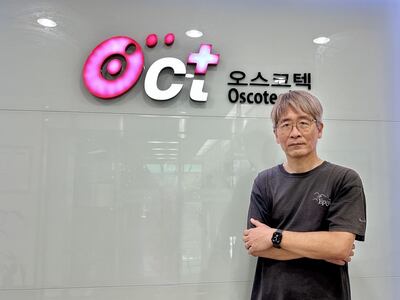
Oscotec co-CEO Taeyoung Yoon highlights anti-resistance and anti-tau therapies as the Korean bioventure’s next possible blockbuster candidates after the landmark US approval of lazertinib for lung cancer.

Following strong demand for offerings by D&D Pharmatech and ENCell, sentiment around biopharma IPOs in Korea appears to be improving, with several other ventures planning to float.

While oncology and discovery-stage assets accounted for the majority of R&D projects supported by a Korean state fund this year, new modalities such as ADCs and TPDs are emerging.

Recent major developments in the Korean biotech sector include Orum Therapeutics’ IPO plan and HLB’s US resubmission for the approval of rivoceranib in combination with camrelizumab for first-line liver cancer.

In a video interview with Scrip, Syed Husain, CEO of the US-based cell therapy CDMO BioCentriq, talks about the company’s role in parent GC’s growth strategy and business priorities, the cell and gene therapy manufacturing market and his views on the US BIOSECURE Act.

While Korean biopharma companies’ out-licensing deals have remained lackluster in the past couple of years, activity around emerging modalities, led by ADCs, have been increasing in line with global trends.

As investor sentiment around Korean biopharma IPOs and financings remained tepid in the second quarter, companies turned to other ways of raising money, including rights offerings. But there are signs of recovery and upcoming catalysts, while on the M&A front Boryung divested a vaccine subsidiary to a private equity consortium.

As it reported mixed second-quarter earnings, South Korea's pharma industry is increasingly turning to obesity pipeline assets. Meanwhile, leadership disputes among family members within Hanmi are resurfacing.

A novel stem cell therapy for Parkinson’s disease developed by a Korean firm has shown what Citeline analysts describe as "very promising" early clinical results at a low dose after one year.

After acquiring a majority stake in ProteoVant last year, South Korea's SK Biopharm is continuing to hunt for new modalities and is now moving into the hot radiotherapeutics area through a deal with Full-Life Technologies.

The second quarter in South Korea was marked by the return of several assets by licensing partners, including Thea Open Innovation, which gave back rights to two ophthalmic programs in-licensed from OliX. Merck & Co. also cancelled a co-research deal with Artiva Biotherapeutics.

A research fellow at South Korea's Science and Technology Policy Institute talked at a recent seminar about the key funding, management and other challenges faced by the domestic biotech sector to sustain growth, and how these contrast with the situation in the US.
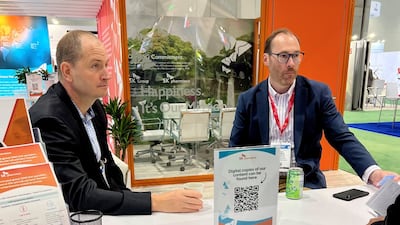
SK pharmteco CEO Joerg Ahlgrimm talks to Scrip about the "excitement" at BIO, potential CDMO shifts amid the US BIOSECURE Act, and the Korean CDMO's focus on business as usual as it seeks to diversify and grow.

Bukwang and subsidiary Contera have become the latest to fail to progress a novel Parkinson's therapy to late-stage trials after a Phase II miss, although several other Korean firms remain in the race for the challenging indication, albeit mainly in Phase I-II.
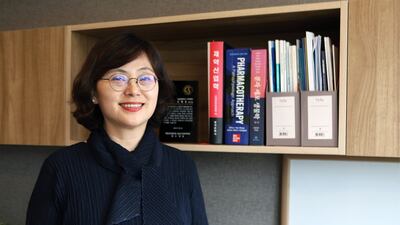
Syntekabio CSO HeaKyoung Cho talks to Scrip how the AI-driven drug development situation in Korea compares with global trends and what the domestic industry needs to do to survive rising competition at home and abroad.

The US approval of HLB and Hengrui’s liver cancer combination therapy looks set to be delayed after the FDA issues a CRL related mainly to CMC data, but the two companies appear positive on a quick resolution to the setback given a lack of other efficacy or safety concerns.

As South Korea's doctors continue their long-running protest against a government plan to raise the medical student quota at universities, the walk-outs may be beginning to take a toll on the pharma industry, with many large firms reporting weak earnings in the last quarter.
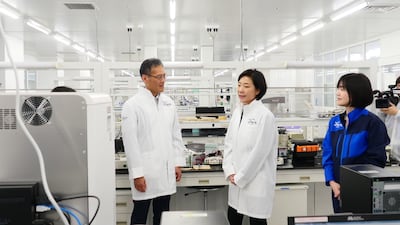
Korean bioventures join an inaugural matching event with Japanese pharma firms at Shonan iPark, amid rising hopes for further bilateral partnerships based on respective R&D capabilities.
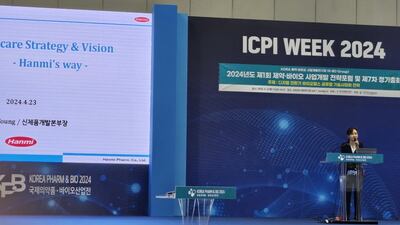
Hanmi’s head of new product development elucidated the leading Korean pharma firm’s digital healthcare strategy at a recent domestic forum, including plans for the country’s first medicine/DTx combo, and shared views on what is needed to improve the domestic regulatory and market environment.

In this video interview, Sharon Chan, vice-president, Johnson & Johnson Innovation – JLABS Asia Pacific, shares her views on what South Korea’s strengths are as a biotech and medtech R&D hub, JLABS's plans in the country and what role it wants for its local activities domestically and beyond.